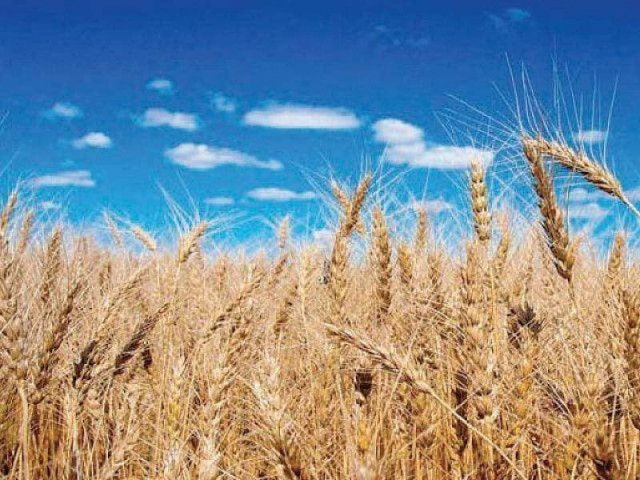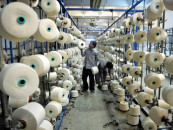Hybrid wheat seeds to become available by 2022
With such seeds, production of staple crop may go up by 40-45%

Wheat is a staple food crop of Pakistan and accounts for nearly 36% of the total cropped area, 30% of value addition in major crops and 76% of the total production of food grains. PHOTO: FILE
“Work is under process in collaboration with the Beijing Academy of Agriculture Sciences and in the past five years around $2.5 million has been spent on this project,” said Guard Agricultural Research and Services Chief Executive Officer Shahzad Ali Malik while talking to journalists.
He pointed out that hybrid wheat would have the same taste and tests currently under way were giving encouraging results.
‘Modern farming methods must for food security, self-sufficiency’
The CEO, whose company markets seeds of corn, tomato and chilli, said the company focused on innovation and research. “We are producing 45% of seeds locally and will enhance the ratio to 80% next year,” he said. “Locally produced seeds are better than the imported ones.”
He voiced concern that many local seed companies and multinationals were merely acting as seed traders and were not promoting research and development in the country.
Agricultural scientists of Muhammad Nawaz Sharif University of Agriculture, Multan claimed earlier this year that they had developed climate-resilient hybrid wheat seeds, which would enhance crop production by 35-40% compared to commonly available seed varieties.
Conducting an experiment, the hybrid wheat was sown in two different cities - Multan and Faisalabad - by the varsity scientists. Average production came in at 66 maunds (40 kg) per acre in Multan and 60 maunds per acre in Faisalabad as opposed to the general varieties, which offered a maximum 40 maunds and 35 maunds per acre in the two cities respectively.
Malik termed the difference in production extraordinary. “Wheat is the most widely grown crop around the world, delivering around one-fifth of total food calories and protein to the global population,” stated an Australian study.
“However, according to an assessment, wheat production needs to be increased by 60% by 2050 to meet high food demand from predicted global population growth by then.”
Wheat is a staple food crop of Pakistan and accounts for nearly 36% of the total cropped area, 30% of value addition in major crops and 76% of the total production of food grains.
Scientific agriculture needed to feed booming population
Pakistan, however, could not achieve the wheat production target this year due to unfavourable weather conditions, which damaged ripe and ready-to-harvest crop, causing a loss of 1.5 million tons against the target of 25.5 million tons.
According to experts, lack of research and development work on seeds has led to the low per acre yield of many crops. To become self-sufficient in wheat, the country has all the required inputs such as hardworking farmers, fertile land, irrigation water and suitable climate. However, short supply of certified seeds has been an issue.
Adoption of modern technology is considered a must for the promotion of research and development activities in agriculture, they say.
Published in The Express Tribune, August 24th, 2019.
Like Business on Facebook, follow @TribuneBiz on Twitter to stay informed and join in the conversation.



















COMMENTS
Comments are moderated and generally will be posted if they are on-topic and not abusive.
For more information, please see our Comments FAQ